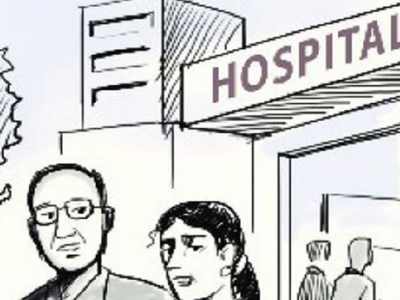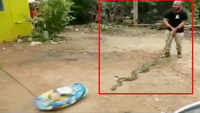
BHUBANESWAR: The health and family welfare department in collaboration with Unicef will undertake the bi-annual campaign to deworm children and adolescents, between one and 19 years, on Thursday. It has set a target to reach out to 1.3 crore people in all 30 districts of the state.
The drive will be a part of National Deworming Day, which aims to deworm all the children between the age group of one and 19 years, on August 8. During the drive, children between one and three years will be administered Albendazole suspension and three to five years will be administered Albendazole tablet at anganwadi centres.
The children between six and 19 years will be administered Albendazole tablet at government, government-aided and private schools by the teachers of schools. Besides, children between six and 19 years, who are out of the school, will also be given Albendazole tablet at anganwadi centres.
Announcing about the campaign, director, health services, Saroj Kumar Nayak said any child, who is not dewormed during the drive due to sickness or absenteeism, will be administered the tablet on August 16. "In addition, the state government will implement the bi-annual Vitamin A supplementation campaign this month," Nayak said.
"Under the Vitamin A supplementation programme, all children from nine months to five years will be administered age-specific Vitamin A dose," said the director, adding regular deworming prevents children from intestinal parasitic worms that can lead to anaemia, malnutrition, impaired mental, physical and cognitive development.
Director, public health, Ajit Mohanty, said the department has decided to combine the deworming drive with Lymphatic Filariasis - Mass Drug Administration campaign in five vulnerable districts such as Balasore, Cuttack, Dhenkanal, Khurda and Nuapada through door-to-door visits. "This will cover the eligible people of two-year-olds and above," he said.
The State Institute of Health and Family Welfare has been entrusted with the responsibility to create mass awareness about the campaign. "To generate awareness among public, information and communication materials like radio jingles, wall paintings, TV spots, posters, and social media infographics will be used," director of the institute Barish Kumar Das said.
Soil-transmitted helminths infection is among the most common infections worldwide. They are transmitted by eggs present in human faeces which in turn contaminate soil in areas where sanitation is poor. "Worm infection can lead to anaemia, which can be prevented through deworming," an expert said.
The drive will be a part of National Deworming Day, which aims to deworm all the children between the age group of one and 19 years, on August 8. During the drive, children between one and three years will be administered Albendazole suspension and three to five years will be administered Albendazole tablet at anganwadi centres.
The children between six and 19 years will be administered Albendazole tablet at government, government-aided and private schools by the teachers of schools. Besides, children between six and 19 years, who are out of the school, will also be given Albendazole tablet at anganwadi centres.
Announcing about the campaign, director, health services, Saroj Kumar Nayak said any child, who is not dewormed during the drive due to sickness or absenteeism, will be administered the tablet on August 16. "In addition, the state government will implement the bi-annual Vitamin A supplementation campaign this month," Nayak said.
"Under the Vitamin A supplementation programme, all children from nine months to five years will be administered age-specific Vitamin A dose," said the director, adding regular deworming prevents children from intestinal parasitic worms that can lead to anaemia, malnutrition, impaired mental, physical and cognitive development.
Director, public health, Ajit Mohanty, said the department has decided to combine the deworming drive with Lymphatic Filariasis - Mass Drug Administration campaign in five vulnerable districts such as Balasore, Cuttack, Dhenkanal, Khurda and Nuapada through door-to-door visits. "This will cover the eligible people of two-year-olds and above," he said.
The State Institute of Health and Family Welfare has been entrusted with the responsibility to create mass awareness about the campaign. "To generate awareness among public, information and communication materials like radio jingles, wall paintings, TV spots, posters, and social media infographics will be used," director of the institute Barish Kumar Das said.
Soil-transmitted helminths infection is among the most common infections worldwide. They are transmitted by eggs present in human faeces which in turn contaminate soil in areas where sanitation is poor. "Worm infection can lead to anaemia, which can be prevented through deworming," an expert said.
Trending Topics
LATEST VIDEOS
More from TOI
Navbharat Times
Featured Today in Travel
Quick Links
Lok Sabha Election Schedule 2019Lok Sabha Election NewsDelhi Capitals teamMI team 2019Rajasthan Royals 2019RCB team 2019Maharashtra Lok Sabha ConstituenciesBJP Candidate ListBJP List 2019 TamilnaduShiv Sena List 2019AP BJP List 2019Mamata BanerjeeBJP List 2019 MaharashtraPriyanka GandhiBJP List 2019 KarnatakaAMMK Candidate List 2019BJP List 2019 WBLok Sabha Elections in Tamil NaduBSP List 2019 UPNews in TamilLok Sabha Poll 2019Satta Matka 2018PM ModiMahagathbandhanNagpur BJP Candidate ListChandrababu NaiduTamil Nadu ElectionsUrmila MatondkarNews in TeluguMadras High CourtTejashwi YadavArvind KejriwalTejasvi SuryaPawan KalyanArvind KejriwalYogi AdityanathJaya PradaSatta King 2019Srinagar encounter
Get the app







